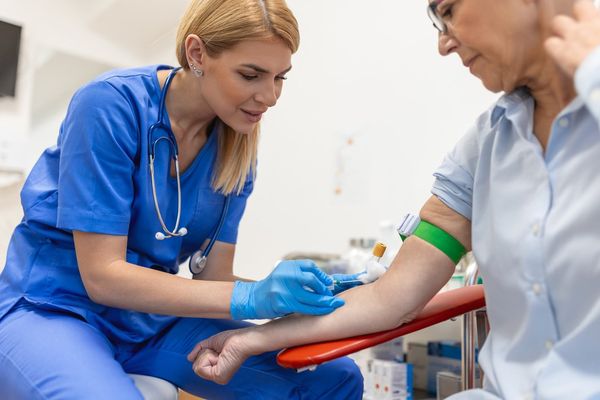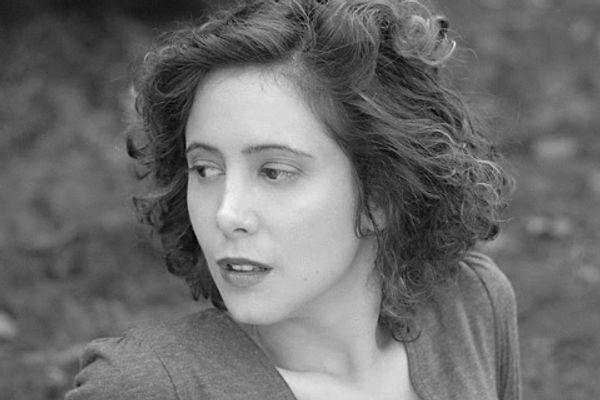In her early 40s, Nina Coslov started experiencing symptoms of perimenopause, but she was still having regular menstrual periods. When she couldn’t get answers from her healthcare providers, she co-founded Women Living Better, an organization dedicated to improving women’s understanding of the path to menopause through research and education. She harnessed her science background to become the lead author on “Symptom Experience During the Late Reproductive Stage and the Menopausal Transition: Observations From the Women Living Better survey,” published in the journal Menopause: The Journal of The North American Menopause Society in September. Coslov recently took time to discuss the study’s findings with HealthyWomen's editor-in-chief Jaimie Seaton.
This interview has been edited for clarity and length.
HealthyWomen: Your study examines the experiences of women in the late reproductive stage in comparison to the experiences of women in the menopausal transition stage. Can you briefly define the stages?
Nina Coslov: The simplest definition is that the late reproductive stage is women that are still having regular periods, meaning that they come monthly or approximately monthly, but you’re noticing subtle changes for length and flow. And the menopausal transition is after you’ve either skipped a period or your cycle lengths become noticeably irregular. For example, if I go 33 days and then all of the sudden, I cycle 26 days and that's happening persistently, they say, "You're in the menopausal transition for perimenopause and the stage preceding that is the late reproductive stage.”
HealthyWomen: I know there's not going to be an exact age, but can you give me a general age range for each stage?
Nina Coslov: No, I can't. [laughter]
HealthyWomen: Okay. Does it just vary too much?
Nina Coslov: Yes, it varies. It varies tremendously.
There's some research literature out there that is about when we expect things to happen versus when they do happen. So when girls expect to have a first period at some point, and let's say they are either early or late, it causes distress. So one of our questions was when did women expect the changes associated with menopause to begin, and 59% said 50 or later — and that's a huge problem because it's much earlier.
HealthyWomen: Why did you and your colleagues undertake the study?
Nina Coslov: The Women Living Better Project started with a personal experience of mine. I was 42 and having regular periods but also started having disrupted sleep and waking up at 2:00 a.m. and being awake for an hour or more. And it really seemingly came out of nowhere. I had three young children, and after my second child was born, I had stopped working outside the home, so there were other reasons I could imagine why I was awake at night and thinking about a million things. But I was waking at night and I had so much energy, it really felt biological. I went to my primary care doctor and my OB-GYN. The first question they asked me was, "Are you still getting regular periods?" And when I said I was, they said this is not related to perimenopause, and they offered me things to help manage my symptoms, but it didn't sit right with me.
I had previously worked in Biotech, so I knew my way around PubMed [a database for biomedical literature], and I said, "I’m going to dive into the research and see what there is.” When I did that, I started finding there is a research gap and most of the studies about menopause really focus on the final menstrual period. Only two studies included women starting at 35, in fact. I ended up connecting with one of the women who was the lead investigator in the Seattle Midwest Women's Study, and she's one of my collaborators. Her name is Nancy Woods. [The other collaborator is Dr. Marcie K. Richardson, a board-certified OB-GYN.]
HealthyWomen: Why is it important to understand how women in different stages experience symptoms commonly associated with menopause?
Nina Coslov: When these things develop for women and they don't attribute them properly, it's surprising and sometimes concerning. So I think it's really important to document the experiences of women. And it's really a place where there's a current research gap. People haven't started looking earlier, so that was the goal of this research.
HealthyWomen: Can give me the highlights of what the study found?
Nina Coslov: I'd say there were three main findings. The first one is that symptoms occur in women who are still getting monthly periods. That is the top line: Women who still get monthly periods experience symptoms commonly associated with menopause. The second is that the symptom experience of those women before their periods were irregular was strikingly similar to those who were already in the menopause transition. Again, it's defined by skipped or very irregular periods, and that's really important. It was more similar than different. Some symptoms increased, but most of them were very similar. And the last thing is that everybody's waiting for the hot flash. Everybody thinks of the hot flash as the hallmark of menopause, and we asked about 61 symptoms, and over half of them were endorsed by 30% or more of the participants. So I think it's really important to know that the symptom experience is really broad, particularly around sleep and mood. I think we need to do more work to better understand those because I think those are the toughest to deal with.
HealthyWomen: That's so interesting. That's actually my next question. Was there anything about the findings that surprised you?
Nina Coslov: The similarity, how similar the two groups were, was the biggest surprise. And also just the broad range of symptoms. Again, it's not all about bleeding. There are some better known symptoms, but I think it's really important to recognize how broad the symptom experience is.
HealthyWomen: How can the findings be used to help women going through these transitions?
Nina Coslov: I'll say two ways. I think there's the self-knowledge for women to know they're not alone and to normalize the experience and not feel afraid. I think there's also two audiences, one is women themselves — to understand better what's going on in their bodies, and then the second is on the healthcare front. It's not all health care, but we need to find a way to create anticipatory guidance for women, and it sounds like that's what HealthyWomen is trying to do. And what we're trying to do is to get this information to women before it begins, just like we do with puberty, like we do with pregnancy. We inform people ahead of time, and I think that's much, much needed here. So anticipatory guidance and then validation, whether it's a healthcare provider validating the experience of someone on the path to menopause or you can self-validate and normalize by just seeing what other people experience.
HealthyWomen: What do we still not know that you'd like to know?
Nina Coslov: I say more about the sleep and mood-related symptoms. The one thing that the survey wasn't able to do was actually link symptoms to hormonal changes. Hormone measurements are really tricky. Also, I’d like to gain an even better understanding of other groups. Our survey was, and I think most online surveys are, largely white, largely affluent and largely educated. We do have a Spanish version of the survey that's being analyzed with a collaborator doing the same, but finding the same information about the symptom experiences of other cultural and ethnic groups is really important too.
HealthyWomen: Is there anything that I haven't asked that you'd like our readers to know about the survey or about your work?
Nina Coslov: It's not necessarily about the survey or the work, but I think it's really important for each of us to take the time to understand what our bodies are going to do through this transition, to self-educate. And then really believe your own experience. Do not let a healthcare provider or anyone else tell you that it's not real. Don't let anyone dismiss what you're dealing with, and then discuss, discuss, discuss. That's the thing that's going to most break down the stigma. Share your experience with other people. Talk about it. It will be welcome. And I think that's what we need to do. We need to make this an everyday topic, and I think each person that starts discussing with peers will make a really big difference on that front.
- The Secret to Combating Perimenopause Weight Gain ... ›
- Managing Perimenopausal Symptoms - HealthyWomen ›
- Dealing With Rage During the Perimenopause Transition and ... ›
- 7 Perimenopause Symptoms You Need to Know About Now ... ›
- The Surprising Signs of Perimenopause - HealthyWomen ›
- Is It Menopause or Something Else? - HealthyWomen ›
- How Women Experience Menopause - HealthyWomen ›







